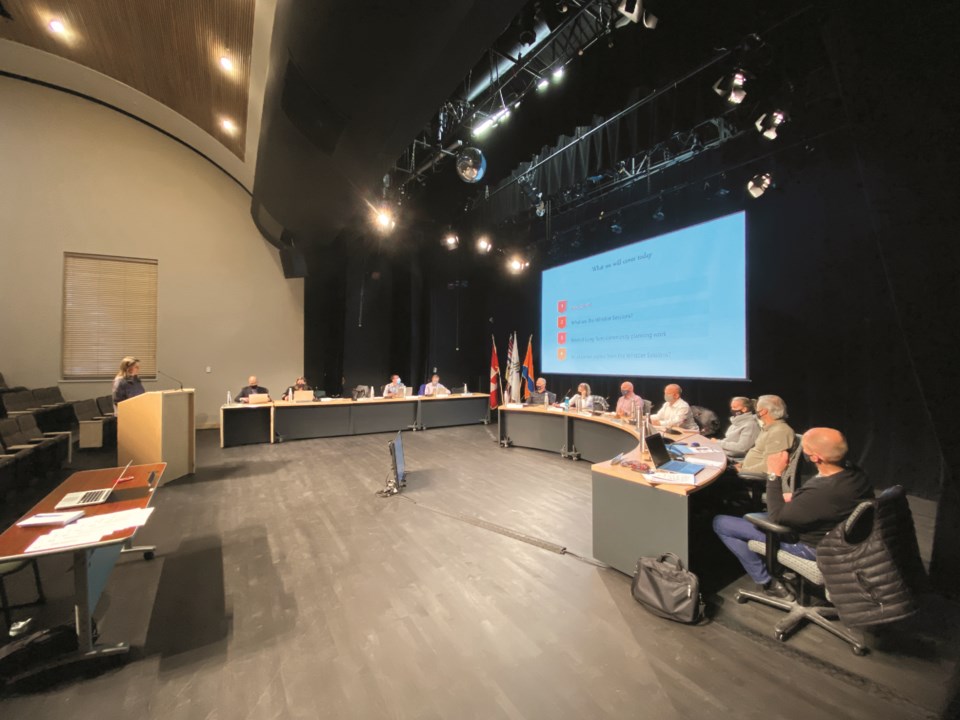The Whistler Recovery Working Group—launched last year in response to the COVID-19 pandemic—is shifting gears.
The working group itself, made up of a diverse group of representatives from across the resort, wrapped in July, but work is set to continue this month through a scenario planning exercise, said chief administrative officer Virginia Cullen at the Oct. 19 Committee of the Whole meeting.
The scenario planning will consider some key questions, Cullen said.
Questions like what is the current state on the ground in the resort? What could happen in the years and decades ahead?
And what must Whistler do—individually and collectively—to recover from COVID-19 while staying true to the vision laid out in the new Official Community Plan?
“It’s not about what we want, it’s not about forecasting what we think will happen. It’s about the potential,” Cullen said.
“What could happen, and that is both on the negative and the positive [so] there’s a real balanced look at it.”
Dubbed “The Whistler Sessions,” the exercise will run three times between now and February 2022, and probe possible futures to guide the resort beyond pandemic recovery.
It will be made up of about 40 people (the original working group members and more), and result in three or four scenarios of possible futures, and the implications included in each.
“Through this, as we do this work, you’re able to identify adjustments and opportunities in our strategy and our planning processes and our action plans and operations for accelerated progress towards becoming a more resilient tourist-based community, as well as having our community vision come to play,” Cullen said.
A final report will be disseminated widely in the community to help all local organizations and residents work towards Whistler’s “desired future.”
The process will be facilitated with help from Reos Partners, which also worked with the initial recovery working group and on other community engagement initiatives, and will also integrate the ongoing work of Whistler’s Strategic Planning Committee (SPC).
The SPC, struck in late 2018 in the early days of mayor and council’s term, is currently working on a “Balance Model,“ which seeks to understand the relationships and tradeoffs between population and other aspects of growth as they relate to the community vision.
While they complement each other, the SPC and the Whistler Sessions are distinct processes, Cullen said.
“The output [from the Whistler Sessions] is something that everybody will use to evaluate strategy in their own business and organizations,” she said.
“So I would say the Whistler Sessions is a broader community process, and the work that’s done there will help feed some good insight to the SPC work, but it doesn’t replace it.”
For all the issues now facing Whistlerites—whether it’s affordability, mental health or the labour shortage—it all comes back to housing, said Councillor Cathy Jewett.
“I really think an understanding of the kind of housing, and who we need to house, is a really important part, and I hope that that’s going to be part of the consideration,” Jewett said.
While the housing crisis will no doubt be included in the stories that come out of the sessions, “the actual question of how does housing need to be developed and brought in, and where and when, the SPC would be the place that that would be looked at in addition to the other organizations that we have working on,” Cullen said.



.jpg;w=120;h=80;mode=crop)
